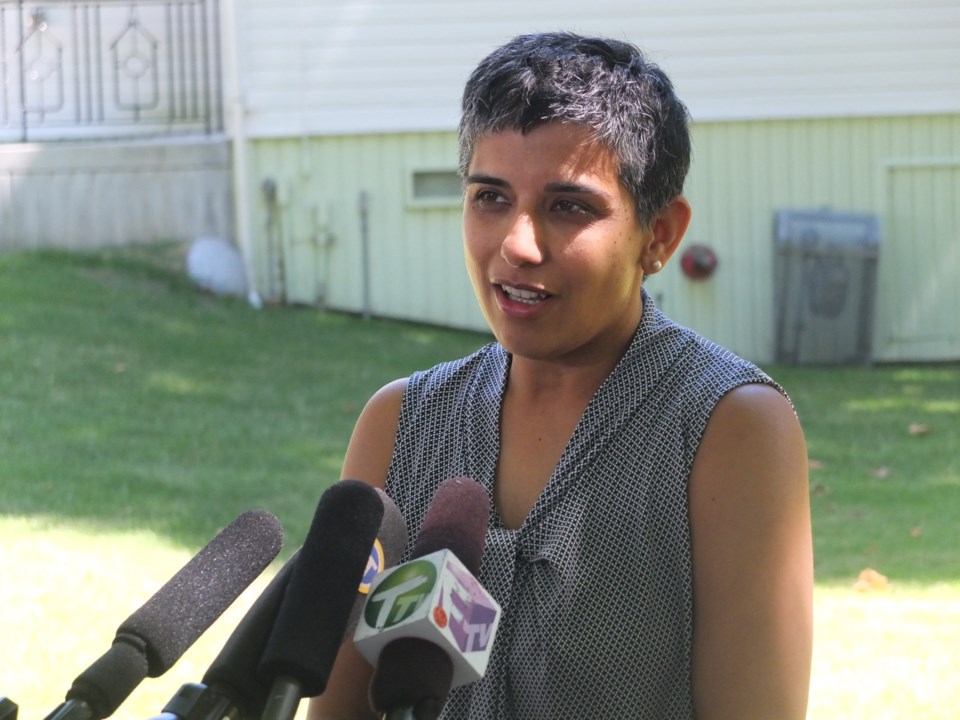Health authorities have urged residents to take extra care to prevent heat-related risks as a heat wave hits the city this week.
The temperature in Richmond is expected to hit 28 degrees Celsius on Friday, which will feel much hotter on the humidex. The heat will continue until Sunday.
The average daily temperature in the first week of August is 22-23 degrees.
A haze fell over the city Tuesday as smoke from wildfires in the Interior pushed in, posing potential health risks relating to air quality, especially to people with medical conditions.
“We advise residents with breathing or cardiac conditions to stay in air-conditioned environments,” said Meena Dawar, Richmond’s Medical Health Officer at Vancouver Coastal Health. “Also, keep monitoring the air quality posted by Environment Canada.”
Compared to smoke, more people are at risk of heat-related diseases, according to Dawar, “but it is something preventable.”
Young people, seniors, those with underlying health conditions, workers in the heat and homeless people are most at risk during the hot weather.
“Keep an eye on your loved ones, especially elders that live alone. Homes can build up heat during the day without them realizing it, so make sure they are informed,” said Dawar.
She suggests parents should be concerned if their young ones are not eating, drinking or peeing much. These may be signs of overheating or dehydration and action should be taken to check that the child is hydrated and cool.
“We can think of some heat-related illnesses like heat fatigue, heat exhaustion, heat cramps, heat swelling, heat rash, and others. For those who have chronic diseases, it will be much harder to cope with the high temperatures.”
Residents are advised to stay in an air-conditioned environment for at least one to two hours a day to reduce the risk of getting heat-related illnesses. Those without air-conditioned homes can go to public places such as shopping malls, supermarkets, libraries, community centres, swimming pools or ice rinks to cool down, especially from 4 to 6 p.m., when the temperature is at its peak.
For those who have to work outdoors, Dawar says to “make sure you wear light-coloured loose clothing, wear a hat, put sunscreen on, try to stay in the shade, and stay hydrated. Don’t wait till you get thirsty before you start drinking water, and eat a lot of fruit.
“If you feel overheated, get away from the sun, drink a lot of water and put some water over your head, That’s the best way to cool down quickly, then go to see your physician.”
The city said emergency shelters for homeless residents will be activated if the heat becomes severe. However, this point has not been reached yet, so the city is still monitoring the situation.
Heat safety tips:
• Spend at least several hours every day in an air-conditioned facility.
• Drink cool, non-alcoholic beverages (preferably water) regularly.
• Wear loose, lightweight clothing.
• Wear a wide-brimmed hat and sunglasses in the sun.
• Stay in the shade or use sunscreen with SPF 30 or more.
• Open windows (ensuring children are not at risk of falling from them), close shades or blinds, use an air conditioner and prepare meals that do not require an oven at home.
• Apply cool water mist or wet towels to your body prior to sitting in front of a fan.
• Avoid tiring work or exercise in the heat, or drink at least two glasses of water each hour if you must exercise.
• Limit outdoor activity during the day to early morning and evening.
• Check in regularly with anyone who lives alone, particularly older people, those with mental illness and anyone else who is unable to leave their un-air conditioned homes, for signs of heat-related illness.
• NEVER leave children or pets alone in a parked car.



